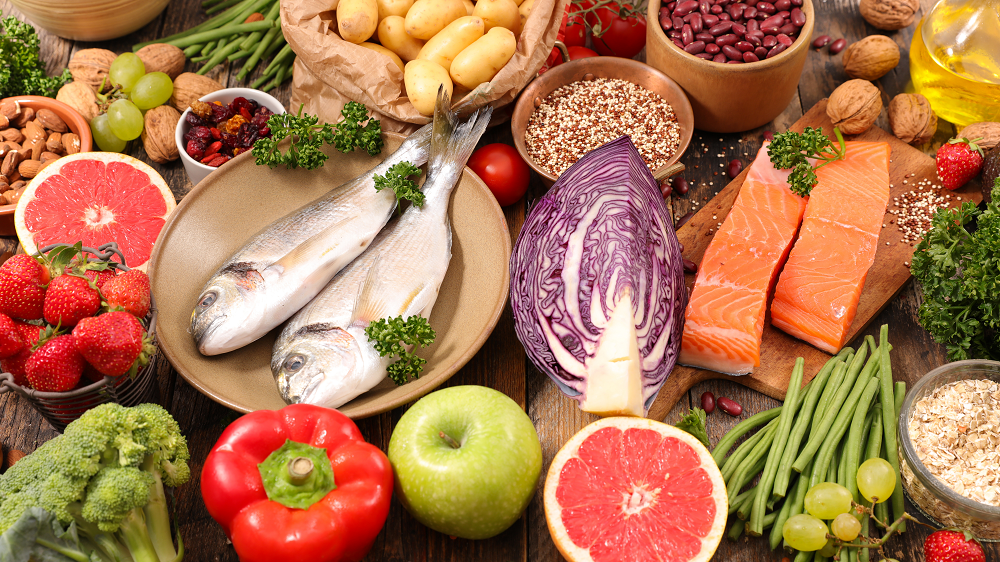
Parenthood is a remarkable journey where every choice you make shapes your baby's future. As you introduce solids to baby, the power of selecting nutrient-packed superfoods becomes evident.
In this guide, we'll delve into the world of organic superfoods, uncovering their exceptional benefits and providing you with a roadmap to nourishing your baby's health and development.
What are Organic Superfoods?
Organic superfoods are foods that are grown and processed without the use of synthetic pesticides, herbicides, fertilizers, or other chemicals. They are also typically high in nutrients, making them a good choice for babies.
Some of the most popular organic superfoods for babies include:
- Avocados: Avocados are a good source of healthy fats, fiber, vitamins C and K, and folate. They are also a good source of lutein and zeaxanthin, which are antioxidants that are important for eye health. Our Shawarma, Artichoke & Cauliflower recipe contains Avocado Oil.
- Broccoli: Broccoli is a good source of vitamins C, K, and A, as well as fiber and potassium. It is also a good source of sulforaphane, an antioxidant that has been shown to boost the immune system.
- Carrots: Carrots are a good source of beta-carotene, which is converted to vitamin A in the body. Vitamin A is important for vision, growth, and immunity. Our Curry Vegetable Mango puree baby food to incorporate carrots into your baby’s diet.
- Yogurt: Yogurt is a good source of calcium, protein, and probiotics. Calcium is important for building strong bones and teeth, while protein is important for growth and development. Probiotics are beneficial bacteria that help to support gut health.
- Leafy Greens: Leafy greens are a superfood high in nutrients and also act as a great plant source of calcium. Some of the most popular leafy greens include kale, spinach, collard greens, Swiss chard, and bok choy. Try our Squash & Kale with Turmeric for a dose of a leafy green superfood for your baby or for notes of sweet beets, try our Beets, Fennel & Kale!
- Sweet potatoes: Sweet potatoes are a good source of beta-carotene, vitamin C, and fiber. They are also a good source of potassium, which is important for heart health.
- Salmon: Salmon is a good source of omega-3 fatty acids, which are important for brain development and heart health. It is also a good source of protein.
How to Introduce Organic Superfoods to your Baby
When introducing organic superfoods to your baby, it is important to start slowly and gradually. Start with one new food at a time and give your baby a few days to get used to it before introducing another new food. Introducing delicious and nutritious baby food purees are a great way to start, considering they are smooth and easy for your baby to swallow.
Tips for Introducing Organic Superfoods to Your Baby
- Start with a single-ingredient food. This will help you to identify any food allergies or sensitivities that your baby may have.
- Start with bland food. This will be easier for your baby to digest.
- Puree the food until it is smooth. This will make it easier for your baby to swallow.
- Offer the food at room temperature. This will be more appealing to your baby.
- Start with a small amount of food. You can always give your baby more if they want it.
- Be patient. It may take some time for your baby to get used to new foods.
Organic superfoods are a great way to give your baby a healthy and nutritious start in life. They are packed with essential nutrients that are important for growth, development, and overall health. When introducing organic superfoods to your baby, it is important to start slowly and gradually. Be patient and give your baby time to get used to new foods.
References:
Harvard Medical School. (2022) https://www.health.harvard.edu/blog/10-superfoods-to-boost-a-healthy-diet-2018082914463
Medical News Today. Carrots. https://www.medicalnewstoday.com/articles/270191
